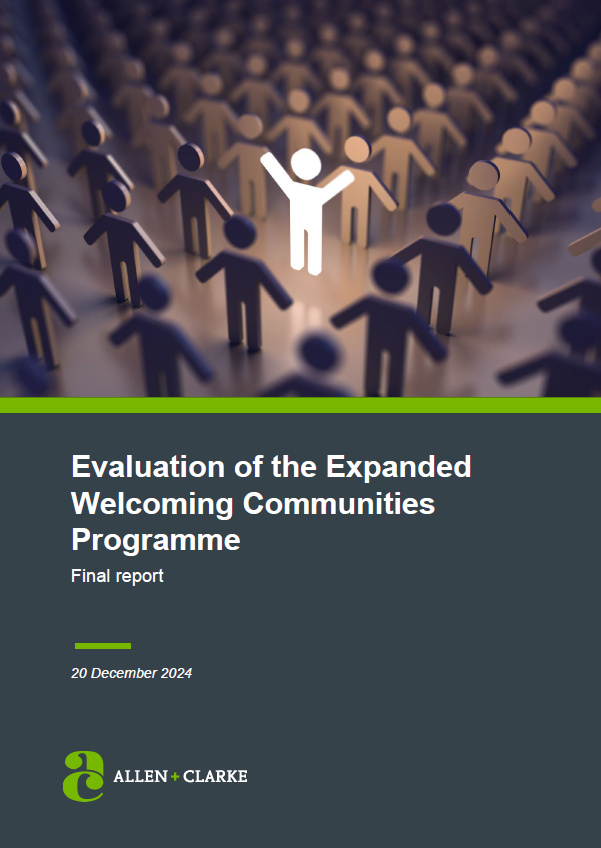
Expanded Welcoming Communities Programme Evaluation Report
Findings of an evaluation of the expanded Welcoming Communities programme.
Welcoming Communities resources are to help you create more inclusive and welcoming communities. The resources are to help grow welcoming efforts in your community.

Findings of an evaluation of the expanded Welcoming Communities programme.
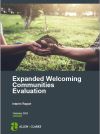
Interim evaluation report of the Welcoming Communities programme.
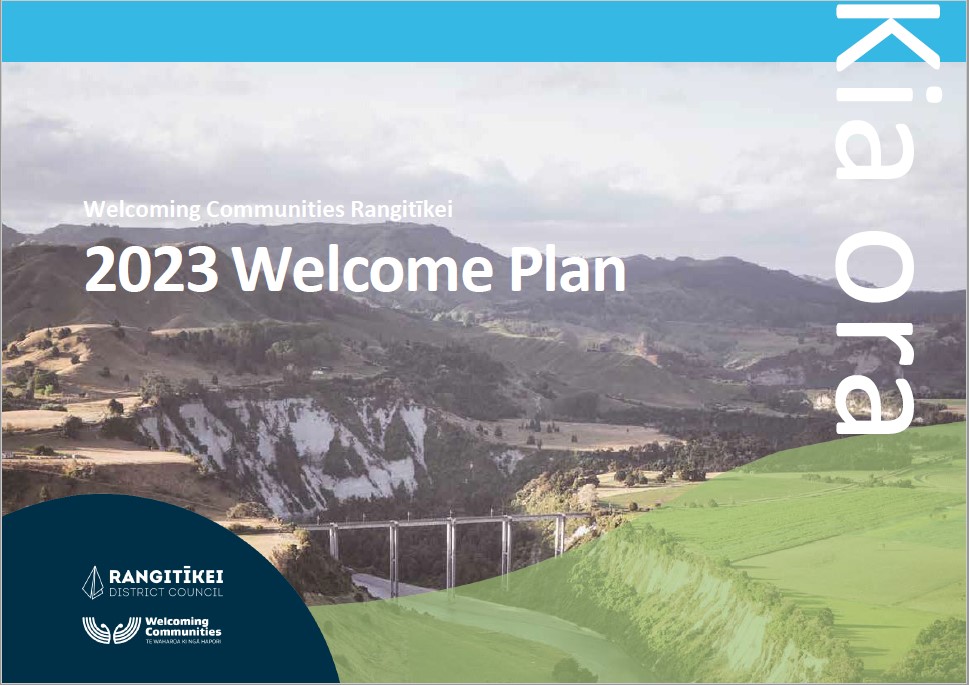
Rangitīkei District Council’s Welcome Plan helps the Rangitīkei district meet the Welcoming Communities Standard of being more open and accepting, and builds on existing efforts to embrace cultural diversity and inclusion.
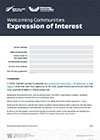
Councils and communities that would like to be part of the Welcoming Communities programme can use this form to submit an expression of interest.
This document is about the Welcoming Communities Standard. It provides councils and community stakeholders with a benchmark for what a successful welcoming community looks like. The standard is made up of eight outcome areas important to creating a welcoming and inclusive environment.
For using to develop your Welcoming Plan as part of the Welcoming Communities Standard. Putting out the Welcome Mat is a resource for communities piloting the programme to use as they develop Welcoming Plans. It is also a resource for others who want to make their communities more welcoming.
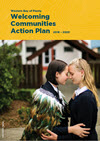
The Western Bay of Plenty Welcoming Communities Action Plan 2018–2020 contains activities to help all residents feel they belong and can participate in the area’s economic, civic and social life.
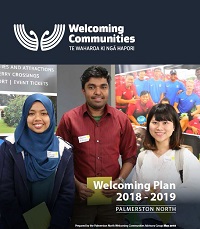
The Welcoming Plan sets out what the community will do to make the city even more welcoming to all newcomers.
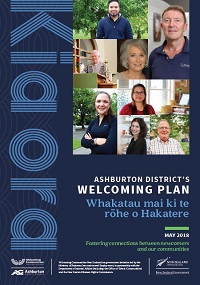
A Welcoming Plan to build connections between newcomers and locals is being rolled out in the Ashburton district.
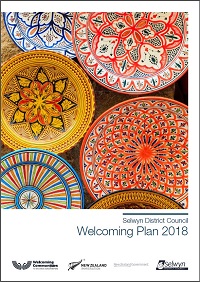
The Welcoming Plan involves the whole community working together to embrace the newcomer and migrant community.
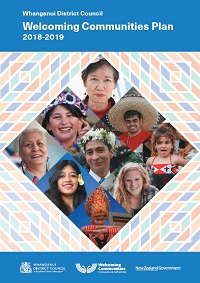
The Welcoming Plan actively involves locals in welcoming newcomers and lists welcoming actions which will be undertaken between now and November 2019.
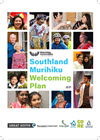
To build a stronger and more diverse Southland region, the Southland/Murihiku Welcoming Plan identifies a range of activities and projects that will develop a sense of belonging for newcomers, celebrate diversity, and encourage social, civic, cultural and economic participation.
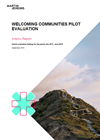
This report provides the interim evaluation findings for the Welcoming Communities pilot programme for the period July 2017 to June 2018. It covers the development, implementation and early outcomes of the programme.
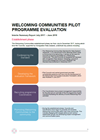
The summary report provides an overview of the Welcoming Communities implementation activities, early outcomes and lessons learned in the first year of the two-year pilot programme.
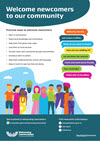
The Welcoming Communities tips poster helps local residents talk to and get to know newcomers. In addition, the poster helps newcomers recognise they are part of a community. You can easily print this poster in a variety of sizes and display it anywhere in New Zealand.
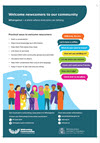
The Welcoming Communities tips poster has been tailored for Whanganui to help locals get to know newcomers. Whanganui District Council is one of the nine councils involved in the Welcoming Communities pilot programme.

Provides an overview of the stages of the Welcoming Communities Accreditation model and its benefits.
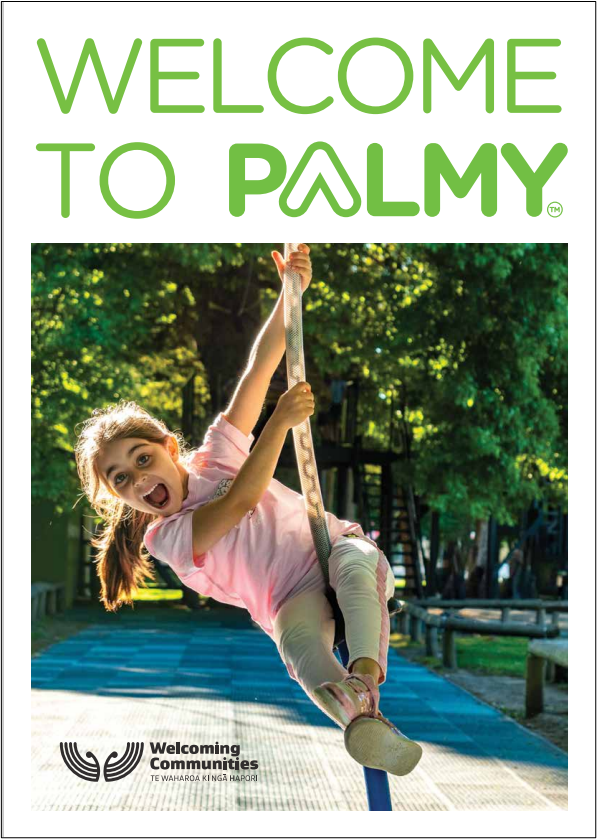
Welcome Pack for people joining the Palmerston North community.

Councils participating in the Welcoming Communities programme use this manual to get information on accreditation, how to apply and the assessment process.
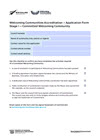
Councils and communities in the Welcoming Communities programme can use this form to apply for accreditation as a Committed Welcoming Community.
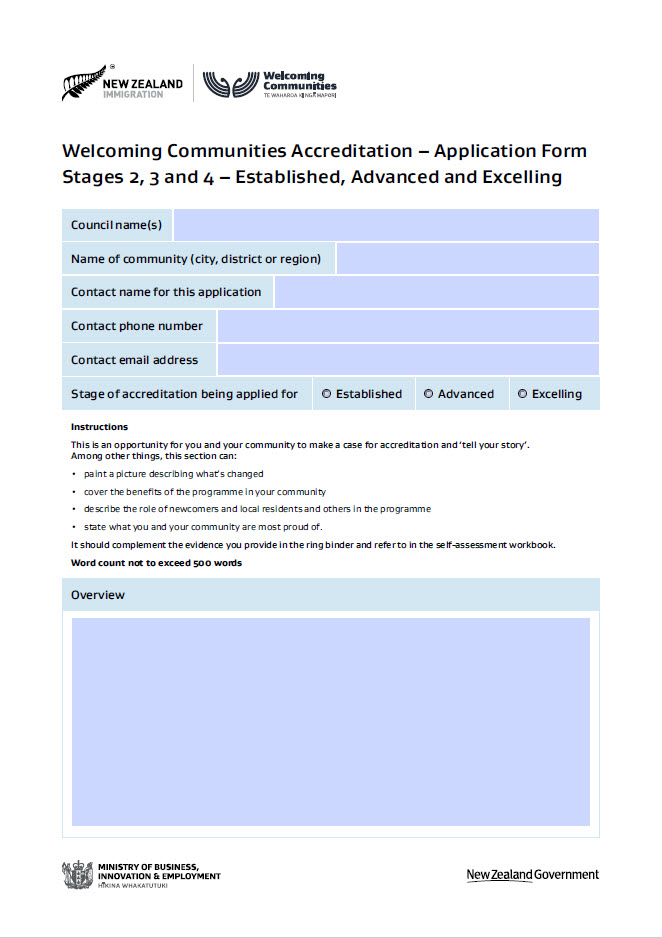
Councils and communities in the Welcoming Communities programme can apply for accreditation at Established, Advanced or Excelling stages.

Councils and communities can use this checklist when they are thinking about applying for accreditation as a Committed Welcoming Community.
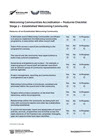
Councils and communities can use this checklist when they are thinking about applying for accreditation as an Established Welcoming Community.
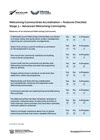
Councils and communities can use this checklist when they are thinking about applying for accreditation as an Advanced Welcoming Community.
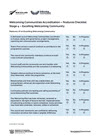
Councils and communities can use this checklist when they are thinking about applying for accreditation as an Excelling Welcoming Community.
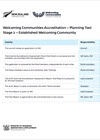
Council staff and members of the External Accreditation Assessment Panel can use this tool to plan the accreditation assessment process at the Established stage.
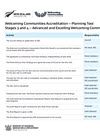
Council staff and the External Accreditation Assessment Panel can use this tool to plan the accreditation assessment process at Advanced and Excelling stages.
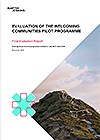
This report provides the final evaluation findings on the Welcoming Communities pilot programme for the period July 2017 to June 2019. It covers the development, implementation and early outcomes of the programme.
A document on the Welcoming Communities rationale and intended outcomes.
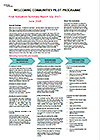
The final summary report provides an overview of the Welcoming Communities implementation activities, early outcomes and lessons learned during the two-year pilot programme – June 2017 to July 2019.
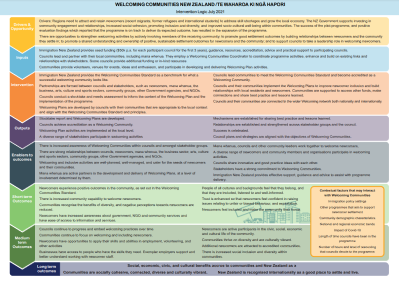
A document outlining the rationale and intended outcomes for the expanded Welcoming Communities programme.
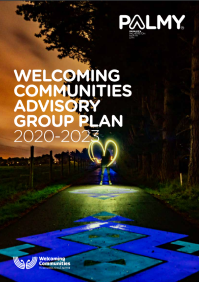
Advisory Group plan detailing the city's continued efforts to build on their welcoming and inclusive reputation.
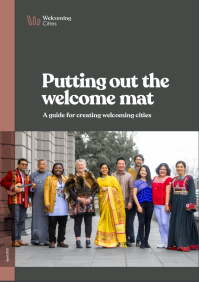
Australia's version of New Zealand's Putting out the Welcome Mat. A resource of ideas and activities to inspire and encourage communities across the Tasman to pursue their welcoming goals.

Video on the introduction of the Welcoming Communities programme.
Recently, Gore District Council has undertaken several initiatives to assist newcomers better integrate into the Gore district community as well as initiatives to assist the Gore district community to welcome these newcomers.

This is Hamilton City Council’s commitment to lead collaborative efforts to develop a Welcoming Plan. This plan will follow the Welcoming Communities Standard and ensure our city is more open and accepting, building on existing efforts to embrace cultural diversity and inclusion.
Central Otago’s Welcoming Communities programme recognises that a strong, vibrant community is one that enables all of its members to participate in its economic, civic and social life. It is a community where everyone feels included and has a sense of belonging.
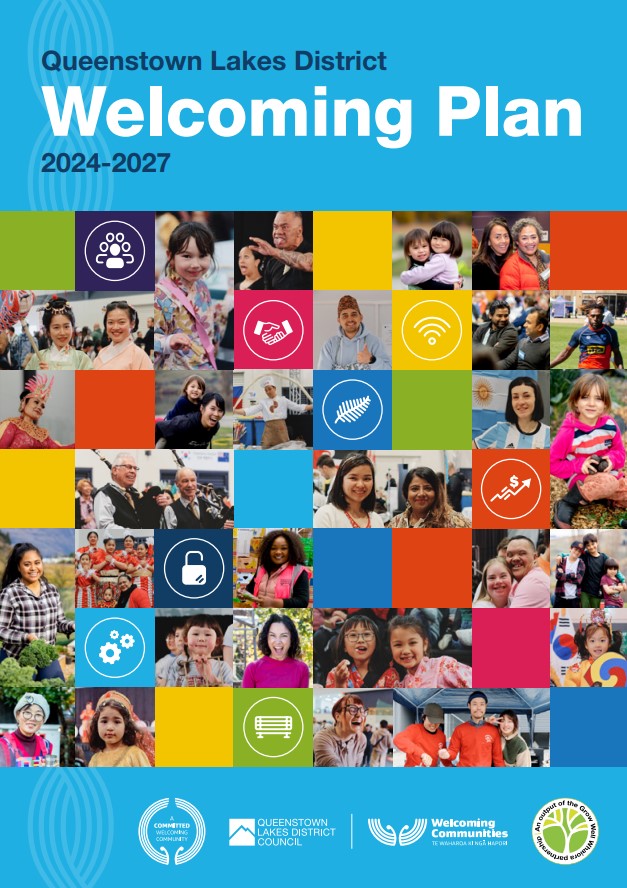
Queenstown Lakes District Welcoming Plan 2024-2027